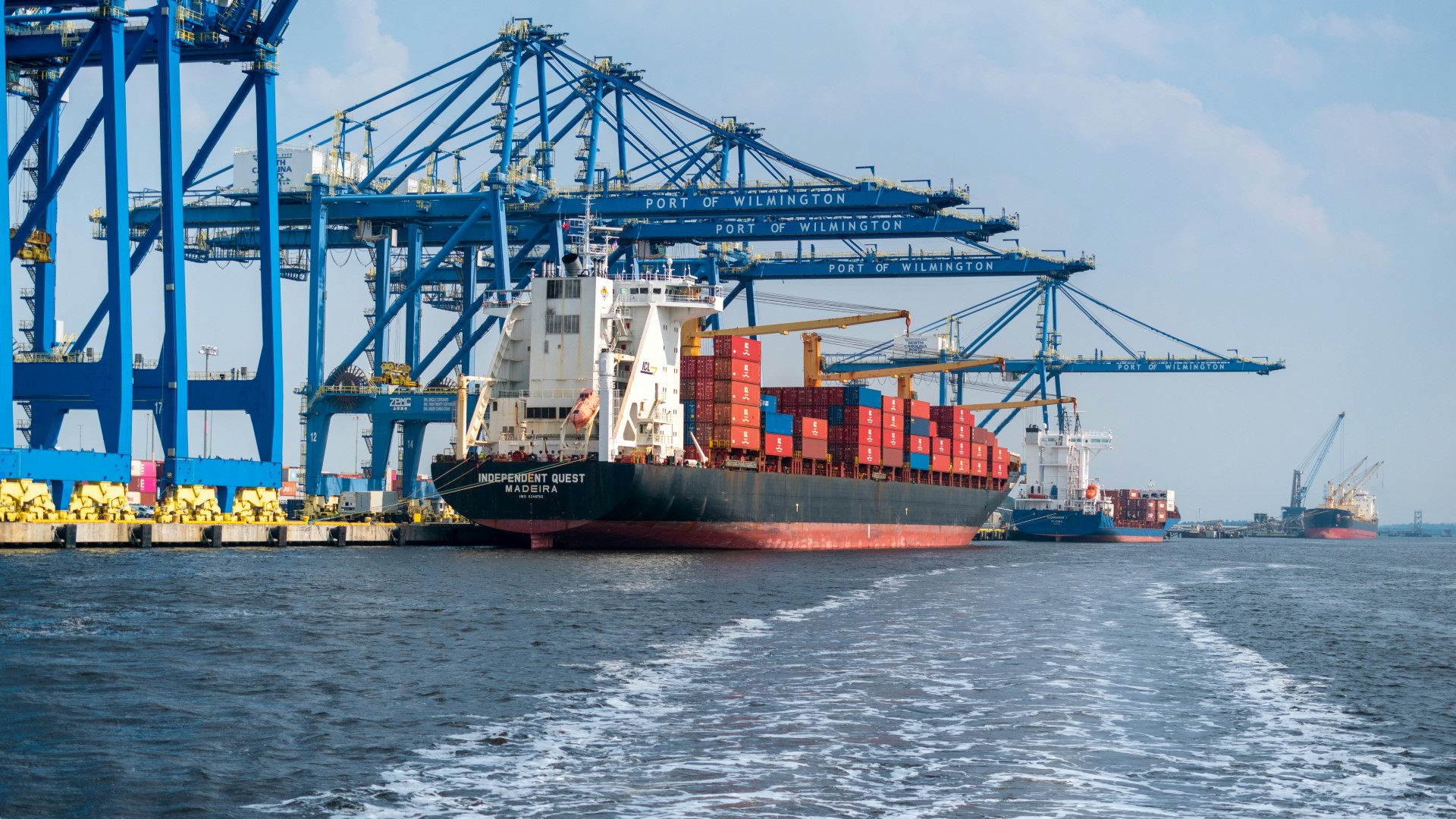Reflecting on One Year of CBAM
As we mark one year since the Carbon Border Adjustment Mechanism (CBAM) entered its transitional phase, the complexities of sustainability and trade remain at the forefront.
In an era defined by rising environmental standards, businesses are navigating a complex landscape of regulations and supply chain difficulties. With ambitious net-zero targets approaching, companies face the formidable tasks of verifying their carbon footprints, addressing greenwashing concerns, and ensuring compliance throughout their multi-tiered supply chains.
REVOLVE spoke to Patrick Crehan, Founder and Director at Crehan, Kusano & Associates and the Director of the Club of Amsterdam and explored the multifaceted implications of the Carbon Border Adjustment Mechanism (CBAM), the interplay between trade and environmental responsibility, and the critical role of collaborative efforts in achieving a sustainable future.

A Level Playing Field
CBAM is designed to establish a level playing field between EU producers and third-country producers. Goods imported from non-EU producers that fail to comply with these standards will face taxes at the border, to be collected by the importer. This effectively encourages non-EU companies to reduce their carbon footprint to avoid these taxes. Furthermore, EU buyers, such as construction and automotive firms, will be disincentivized from sourcing cheaper, higher-carbon materials from outside the EU.
Currently, CBAM applies only to companies within the EU Emissions Trading System (ETS) and focuses on a limited list of high-carbon footprint products, including iron, steel, cement, and aluminum. Importers bear the responsibility of providing accurate carbon footprint data, a cost they will likely pass on to exporters. However, as the EU ETS evolves, CBAM will inevitably expand to encompass a broader range of products and attributes, and it may apply to biodiversity impacts and water resource management.
The introduction of CBAM has sparked controversy, as some countries perceive it as an extension of colonial practices, arguing that advanced economies like the EU should bear a larger burden for reversing climate change. Countries like India, China, Russia are already pushing back against CBAM, and some countries are considering creating their own CBAM to help them achieve a higher level of competitiveness.
Gaps and Responsibilities
As legislation progresses, ambiguities remain. CBAM currently applies to traded goods but does not extend to the transportation sector, including aviation and shipping, although discussions about this extension are ongoing. The transition from voluntary Environmental, Social, and Governance (ESG) standards to mandatory compliance has intensified scrutiny on sustainability practices. Certification bodies, like the International Sustainability and Carbon Certification (ISCC), are essential for verifying sustainable practices, yet blind spots within the -reporting system can undermine their effectiveness.
For instance, non-governmental organizations have raised concerns about the legitimacy of -sustainable fuels, particularly biodiesel in Europe, where sourcing issues (Chinese used cooking oil imports fraud) have led to bans on categorization of certain sustainable fuel sources. This underscores the complexities of enforcing sustainability within supply chains. The Corporate Sustainability Due Diligence Directive add another layer of responsibility, requiring companies to verify the sustainability of the suppliers. However, the pressure to meet targets may push some businesses toward greenwashing, which ultimately erodes trust in self-reported claims.

Challenges in Supply Chain Transparency
Large companies carry a significant burden in ensuring their supply chains are sustainable. Conducting thorough due diligence across complex, multi-tiered supply chains is no small feat. For example, a business sourcing material from farmers in India may find it challenging to trace sustainable practices many layers deep into the supply chain. This interconnectedness highlights the collaborative efforts necessary across industries as we aim not only to lower emissions but also report on them in a way that is auditable.
This interconnectedness highlights the collaborative efforts necessary across industries as we aim not only to lower emissions but also report on them in a way that is auditable.
Efforts to foster transparency remain in their infancy and they’re becoming increasingly urgent. While some suppliers are willing to share data on their carbon footprints, many lack the capacity to do so, compelling companies to ask tough questions about sustainability efforts. Reducing carbon emissions, especially in Scope 3, poses a significant challenge that necessitates collaboration across sectors and borders.
Compliance and Accountability
The move toward sustainability and net-zero emissions is not only complex but requires clear legislation, cooperative trading relationships, and robust certification systems. As regulations become more stringent, businesses worldwide must invest in substantial resources to ensure compliance while navigating the challenges of this new sustainability era. The Green Claims Directive, which came into effect in March 2024, mandates that all environmental claims on product labels must be scientifically substantiated, adding another layer of accountability.
Consider the case of an Australian wine which claims to have a net-zero carbon footprint. While producers may claim sustainability at the farm level, transportation significantly impacts the overall carbon footprint. Improved energy efficiency in shipping is important, but emissions from transporting goods can sometimes surpass those generated during sea voyages, highlighting the need for rigorous life cycle analysis to assess a product’s true environmental impact.
CBAM and the Future of Sustainable Energy: Biofuels, Hydrogen, and Innovative Solutions
The CBAM, fundamentally a trade mechanism, imposes taxes on imported goods to support European companies striving for sustainability. Shipping plays a crucial role in global trade, and while massive container ships demonstrate remarkable efficiency, they also create a significant demand for sustainable fuels.
Ultimately, achieving sustainability is a collective endeavor that requires commitment and cooperation from all stakeholders.
Although hydrogen is often touted as the ultimate solution for sustainable transportation, biofuels are expected to remain a critical component of our transport energy strategy through 2050. Long-distance shipping and air travel will continue to rely heavily on biofuels, while emerging technologies, such as synthetic fuels, will also play a role. Transitioning industries away from fossil fuels requires innovative solutions. For example, a significant portion of energy in heating—around 70%—is used for heating and boiling processes, which typically rely on fossil fuels. Utilizing biomass in efficient formats, such as briquettes, can offer a viable alternative in industrial settings, helping to reduce reliance on fossil fuels, in many cases lower-quality lignite coal.

Collaboration for a Sustainable Future
As we advance toward a sustainable future, the transition to a bio-based economy embodies both a technological challenge and a profound opportunity for social transformation, particularly in farming communities. The complexities of the CBAM necessitate collaboration across sectors and borders, emphasizing the importance of transparency and accountability in our sustainability efforts.
While large corporations face scrutiny and pressure to meet evolving regulatory standards, the path to net-zero emissions relies on partnerships with countries rich in biomass resources. Addressing the challenges in supply chains, fostering innovation, and implementing robust certification systems will be essential as we navigate this dynamic landscape.
Ultimately, achieving sustainability is a collective endeavor that requires commitment and cooperation from all stakeholders. By embracing these principles, we can not only mitigate environmental impacts but also build resilient communities and economies that thrive in a -bio-based economy. The journey is complex, but with shared responsibility and collaborative action, a sustainable future is within reach.
